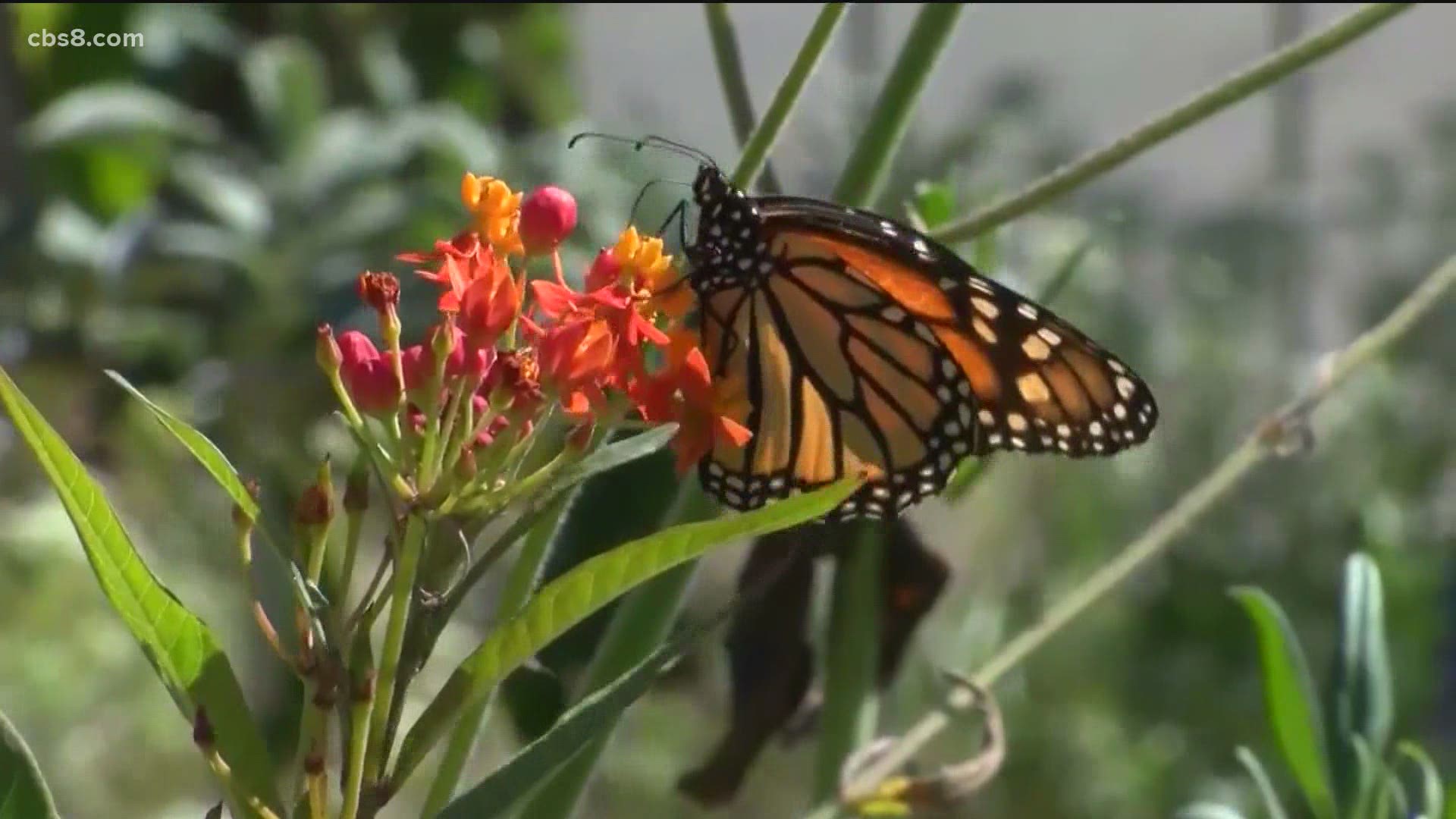HOUSTON — The record freeze in Texas and unusually cold weather in Mexico this winter have taken a toll on the beautiful Monarch butterfly population.
That means we’ll see fewer Monarchs winging their way across Texas this spring on their annual migration north.
The butterfly population had already taken a dramatic hit in the last few years, TAMU researcher Craig Wilson told Texas A&M Today.
He’s estimating just over 105 million Monarchs this spring compared to 141 million last year and 300 million in 2019.
Monarchs spend the winter months in Mexico and most of them are still there.
They pass through Houston on their journey, but some make their home here all year.
“The spring migration has yet to start out of the overwintering sanctuaries in Mexico, although there has been slight movement of some colonies down the mountains,” Wilson said. “Of course, the recent freezing of Texas means that the milkweed plants so necessary for egg laying by the migrating Monarchs have been delayed if not killed pre-emergence.”
You can help the remaining butterflies thrive by planting milkweed, which is essential for their food supply.
“The state of Texas is always critical for them as they pass through here on their way north and lay eggs,” Wilson said. “It is extremely important that citizens plant milkweeds in their gardens to make them ‘Monarch friendly’ in the spring along with pollinator plants like lantana and verbena for both spring and fall feeding by adult Monarchs.”
Milkweed is sometimes hard to find at nurseries, but it will soon be available at the Cockrell Butterfly Center at the Houston Museum of Natural Science. They’ll have native milkweed and other garden pollinators at their virtual plant sale on April 10.
The Monarch butterfly was named the official state insect of Texas in 1995.

